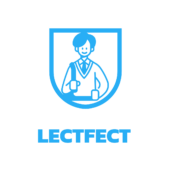In a world where career advancement often feels like a game of whack-a-mole, professional development coaching emerges as the ultimate cheat code. It’s not just about climbing the corporate ladder; it’s about mastering the art of dodging pitfalls and seizing opportunities. Imagine having a seasoned guide who helps navigate the maze of workplace challenges while sprinkling in a little humor to keep things light.
Professional development coaching isn’t just for those looking to snag a corner office; it’s for anyone ready to unlock their potential. Whether it’s honing leadership skills or boosting confidence, a good coach can turn the daunting journey of self-improvement into an exciting adventure. So, why not invest in yourself? After all, the only thing standing between you and your dream job is, well, you.
Professional Development Coaching
Professional development coaching focuses on enhancing career-related skills and personal growth. This coaching targets individuals at all stages of their careers. Coaches provide personalized guidance to help clients identify strengths and areas for improvement. Through tailored programs, they facilitate goal setting and create actionable plans.
Organizations value professional development coaching for its impact on employee performance. Benefits include increased productivity, enhanced leadership skills, and improved job satisfaction. Individuals often find that coaching boosts their confidence and equips them with tools to tackle workplace challenges. By developing communication and problem-solving skills, clients can navigate complex situations more effectively.
Feedback forms a crucial part of the coaching process. Coaches encourage individuals to reflect on their experiences and adapt their strategies. The collaborative nature of coaching fosters accountability, motivating clients to stay focused on their objectives. This relationship creates a safe environment where clients can express concerns and explore new ideas.
Many coaching programs incorporate assessments to measure progress. These assessments help identify skills gaps and track development over time. Utilizing metrics allows for objective evaluations of improvement, ensuring that clients achieve their desired outcomes.
Additionally, coaching promotes a culture of continuous learning. Organizations that invest in their employees through professional development coaching often see lower turnover rates. This signifies a commitment to employee growth, which ultimately contributes to overall organizational success.
Benefits of Professional Development Coaching



Professional development coaching offers invaluable advantages for individuals aiming to enhance their career trajectories. It provides personalized support to help individuals navigate their professional paths effectively.
Enhanced Skills and Competencies
Individuals experience significant growth in skills and competencies through targeted coaching sessions. Coaches assess client strengths and weaknesses, then tailor strategies to address specific needs. Such customized approaches equip clients with tools to improve communication, leadership, and problem-solving abilities. The process encourages continuous learning, allowing participants to adapt in fast-changing work environments. Regular feedback from coaches creates accountability and motivates clients to refine their skills, ensuring they stay aligned with industry standards. Organizations that prioritize coaching thus foster a workforce that is both adaptive and proficient.
Improved Career Advancement
Career progression often accelerates with professional development coaching. Clients set clear, actionable goals alongside their coaches, which helps them track their advancements more effectively. When individuals enhance their skills, many notice increased visibility within their organizations. Opportunities for promotions, leadership roles, or special projects may arise as a direct result of their growth. Participants often report higher job satisfaction, leading to a more fulfilled professional life. Organizations strongly benefit from this development, observing improved retention rates as employees feel more empowered and aligned with company goals.
Key Features of Effective Coaching Programs
Effective coaching programs share essential features that enhance their impact. Personalization and customization are crucial elements that tailor the coaching experience to individual needs.
Personalization and Customization
Effective coaching programs prioritize personalization and customization. Coaches assess each client’s unique strengths and weaknesses, enabling them to develop tailored strategies. Tailored approaches create a more relevant learning environment. Clients engage deeply in the process, increasing their motivation and commitment. A one-size-fits-all approach often falls short; personalization fosters meaningful connections and boosts learning outcomes. The ability to adapt coaching techniques ensures clients receive the support they require.
Measurable Goals and Outcomes
Measurable goals and outcomes define the effectiveness of coaching programs. Coaches help clients set clear, actionable objectives that align with their career aspirations. Regular assessments track progress, allowing clients to see tangible results. This data-driven approach enhances accountability, ensuring clients stay focused and motivated. With measurable outcomes, individuals can evaluate their growth and adjust strategies accordingly. Organizations benefit as well, gaining insights into the coaching program’s effectiveness and its impact on employee performance. Clear metrics foster a culture of continuous improvement.
Types of Professional Development Coaching
Professional development coaching comes in various formats, each offering unique benefits tailored to different individuals and teams. Understanding these types helps organizations choose the right approach for their needs.
Individual Coaching
Individual coaching emphasizes personalized attention, helping clients focus on specific goals. Coaches assess strengths and weaknesses, facilitating tailored strategies that address unique challenges. Clients engage in one-on-one sessions, allowing for deep exploration of personal and professional aspirations. Feedback is integral, fostering accountability and continuous improvement. Coaches guide clients in setting actionable goals, ensuring every step supports their career advancement. This tailored approach boosts confidence and equips individuals with tools necessary for success.
Group Coaching
Group coaching combines the strengths of collective learning with personalized development. Participants share experiences, fostering a supportive environment that encourages collaboration. Coaches guide the group through relevant topics, creating discussions that broaden perspectives. This format allows for networking opportunities, enhancing professional relationships. Groups often tackle shared challenges, providing diverse insights and solutions while learning from each other’s journeys. Coaches facilitate goal setting for the entire group, promoting accountability and collective growth.
Conclusion
Investing in professional development coaching can transform careers at any stage. It fosters a supportive environment where individuals can enhance their skills and build confidence. Through personalized guidance and tailored strategies, coaching empowers clients to tackle challenges and achieve their goals.
Organizations that prioritize coaching not only boost employee performance but also cultivate a culture of continuous learning and improvement. As employees feel more engaged and aligned with company objectives, retention rates improve, contributing to overall success. Embracing professional development coaching is a strategic move that benefits both individuals and organizations in today’s competitive landscape.

